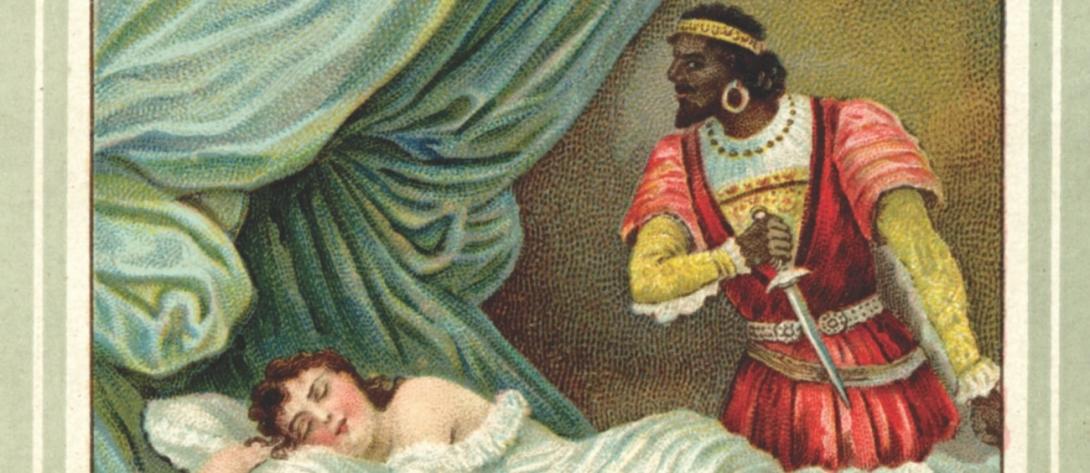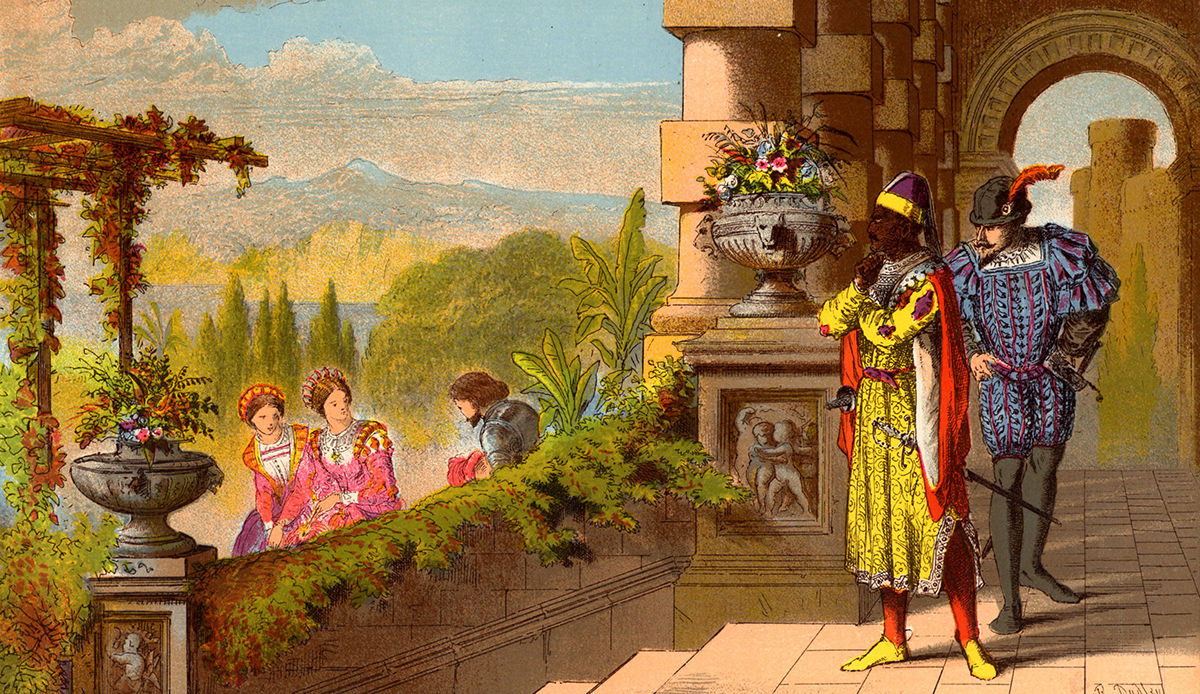Bad Blood
Emily Weissbourd explores representations of race in dramas from early modern England and Spain
For many years, literary scholars have declared that racialized slavery was not yet widely understood in early modern England. Plays such as Shakespeare’s Othello describe enslavement as related to Christian-Muslim conflicts in the Mediterranean, but a book by Emily Weissbourd offers a different perspective. The context of the Atlantic slave trade is indispensable to understanding race in early modern Spanish and English literature alike, she argues.
Weissbourd’s book Bad Blood explores representations of race in early modern English and Spanish literature, specifically drama, by tracing the development of European racial vocabularies from Spain to England. Weissbourd, assistant professor of English, addresses two forms of racial ideology: one concerned with racialized religious difference—the notion of having Jewish or Muslim “blood”—and one concerned with Blackness and whiteness.
“When scholars of Renaissance English literature have talked about race, they’ve often assumed that Shakespeare’s England is almost pre-racial, or that if there is something like race, it’s related to religious antagonism (Christians seeing Jews and Muslims as ‘other’). In this model, there are no Black people in early modern Europe,” Weissbord says. “There’s no slavery. That all comes later. But, there’s a pretty sizeable enslaved population in Spain by the end of the 1400s, many of whom are from sub-Saharan Africa. So, that means we can definitely read a play like Othello in the context of slavery and anti-Black racism without being anachronistic or being like, ‘oh, that’s us imposing our own values.’ That stuff is there, in Shakespeare’s own time period.”

In addition to Shakespeare, Weissbourd examines the work of writers such as Lope de Vega, whom she describes as Spain’s equivalent to Shakespeare. She also writes about Diego Jimenez de Enciso’s play El Encubierto y Juan Latino.
“It’s based on a true story of an enslaved Black man in Granada in the 16th century who ended up becoming a Latin professor and marrying a white Spanish noble woman and living happily ever after, which is a really different version of race in this period than we might imagine,” she says.
Through readings of the plays by Shakespeare, de Vega and their contemporaries, as well as Spanish fiction and its English translations, Weissbourd examines how ideologies of racialized slavery, as well as religious difference, come to England via Spain and how both notions of race operate in conjunction to shore up fantasies of Blackness, whiteness and “pure blood.” The enslavement of Black Africans, Weissbourd shows, is inextricable from the staging of race in early modern literature.

